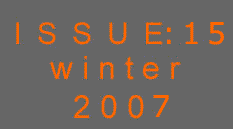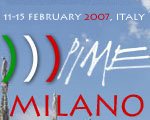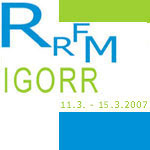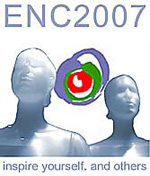
Word from the President

Contributing, communicating, participating.
Dear ENS NEWS Reader,
First of all I would like to wish you and your family a happy,
prosperous and healthy 2007!
But what will the New Year bring? Well, it certainly
promises to be a busy one and a watershed year for EU energy policy
– something that this edition of ENS NEWS has attempted
to reflect. The urgent need to drastically reduce greenhouse gas
emissions, geopolitical realities imposed by the planet’s
finite resources, the just struggle by developing countries to
achieve reasonable living standards and the global population
explosion all point an inescapable and non-negotiable requirement
for sustainable energy sources. And it appears that EU leaders
recognise this fact and are committed to meeting these challenges.
The strategic energy review that was recently
undertaken by the European Commission shows how a new spirit of
pragmatism has given fresh impetus and a sense of urgency to EU
energy policy. Let’s hope that decision-makers and policy-shapers
at all levels can get their act together and translate words into
deeds. EU energy policy’s reinforced focus on combating
climate change, ensuring greater security of energy supply and
increasing research spending by 50% over the next 7 years will
continue to influence the focus of the nuclear science community’s
work and, to a large extent, define the environment in which we
work. I think it is very important that the nuclear science community
makes its voice heard more and engages more actively in the debate
that shapes the EU energy policy-making process.
Nuclear energy is certainly not the only sustainable
energy source, nor is it the only acceptable one in today's context.
The nuclear community is convinced, however, that it is a crucial
component of the overall energy mix and an environmentally-friendly
and economically viable option for meeting our long term energy
needs. To make this a reality will require the appliance of science
and the harnessing of the latest scientific and technological
advances. But it will also require a considerable communications
effort and, above all, the optimal exploitation of nuclear energy
in accordance with the highest of safety standards. None of us
needs reminding that it only takes one major nuclear-related accident
to occur for the future of nuclear energy, and the scientific
work that underpins it, to be seriously compromised in large parts
of the world, particularly in Europe.
This leads me to another area that we need to
concentrate on - communications. We need to increase the visibility
and credibility of the work that we do. Common misconceptions
and misinformation about nuclear energy need to be dispelled.
Part of the problem is that many people remain largely unaware
of the broad range of nuclear applications that exist and how
they are present in our daily lives. They have little or no idea
those applications can improve quality of life and protect the
interests of consumers across the world. For example, each year
the diagnosis and subsequent treatment of millions of patients
depend upon reactor or accelerator-produced radio-nuclides. Thousands
of industrial processes use sealed radioactive sources for monitoring,
quality assurance etc. Of course, we know that nuclear is about
a lot more than just energy – but how many ordinary citizens
do?
This situation needs to change. The onus, therefore,
is on us to “sell” the success of our science. Mind
you, not all nuclear scientists are born communicators. But I
believe that we have to play our role in spreading information
in a clear, objective and scientific way - and by so doing enhance
the knowledge and improve the opinion that people have about all
things nuclear.
One of the mainstays of the service that ENS
provides is, of course, its conferences. Following on from what
I just said about the importance of communications, the ENS conference
schedule, appropriately, kicks off from 11-15 February with PIME
2007 (in Milan). PIME is an established annual conference
for communicators in the nuclear research and industry sectors.
It is organised with the collaboration of FORATOM, the IAEA and
the NEA.
Next up will be RRFM/IGORR 2007
(in Lyon from 11-15 March). This annual ENS fixture for specialists
working in the field of fuel management for research reactors
is organised in co-operation with the IAEA.
Finally, ENC2007 (the European
Nuclear Conference) will take place in Brussels from 16 -19 September.
ENC2007 is a biannual conference that provides a platform for
sharing knowledge and insight into the latest developments in
nuclear research. It also seeks to seek synergy between the scientific
community, industry and citizens on the key issues of the day.
It is organised in collaboration with the British Nuclear Society,
the American Nuclear Society and the Vrije Universiteit Brussel.
Make sure you register now for the conference(s)
of your choice. And remember, your feedback on the conferences
and all other aspects of ENS’ work is crucial if we are
to improve the service that we provide.
ENS looks forward very much to further developing
the way it collaborates with its members in the year to come.
I hope that we will satisfy your needs and live up to your expectations
by providing you with the information and support you will need
to keep abreast of what’s going on in the nuclear community
and expand your activities.
Let’s make the New Year one to remember.
Best regards and enjoy your ENS NEWS!
Frank Deconinck.
President of ENS
|






